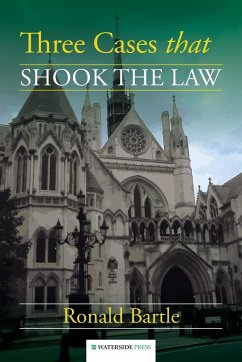
Ten Days That Shook the World
Versandkostenfrei!
Versandfertig in 1-2 Wochen
17,99 €
inkl. MwSt.

PAYBACK Punkte
9 °P sammeln!
Ten Days That Shook the World (1919) is a book by the American journalist and socialist John Reed about the October Revolution in Russia in 1917, which Reed experienced firsthand. Reed followed many of the prominent Bolshevik leaders closely during his time in Russia. John Reed died in 1920, shortly after the book was finished, and he is one of the few Americans buried at the Kremlin Wall Necropolis in Moscow, a site normally reserved only for the most prominent Soviet leaders. THIS book is a slice of intensified; history as I saw it. It does not pretend to be anything but a detailed account o...
Ten Days That Shook the World (1919) is a book by the American journalist and socialist John Reed about the October Revolution in Russia in 1917, which Reed experienced firsthand. Reed followed many of the prominent Bolshevik leaders closely during his time in Russia. John Reed died in 1920, shortly after the book was finished, and he is one of the few Americans buried at the Kremlin Wall Necropolis in Moscow, a site normally reserved only for the most prominent Soviet leaders. THIS book is a slice of intensified; history as I saw it. It does not pretend to be anything but a detailed account of the Russian Revolution, when the Bolsheviki, at the head of the workers and soldiers, seized the state power of Russia and placed it in the hands of the Soviets. John Reed John Reed was on an assignment for The Masses, a magazine of socialist politics, when he was reporting the Russian Revolution. Although Reed states that he had "tried to see events with the eye of a conscientious reporter, interested in setting down the truth" during the time of the event, he stated in the preface that "in the struggle my sympathies were not neutral" (since the book leans towards the Bolsheviks and their viewpoints) Before John Reed left for Russia, the Espionage Act was passed on June 15, 1917, which fined and imprisoned anyone who interfered with the recruiting of soldiers and prohibited the mailing of any newspaper or magazine that promoted such sentiments. The U. S. Post Office was also given leave to deny any mailing that fitted these standards from further postal delivery, and then to disqualify a magazine because it had missed a mailing (due to the ban) and hence was no longer considered a "regular publication."












